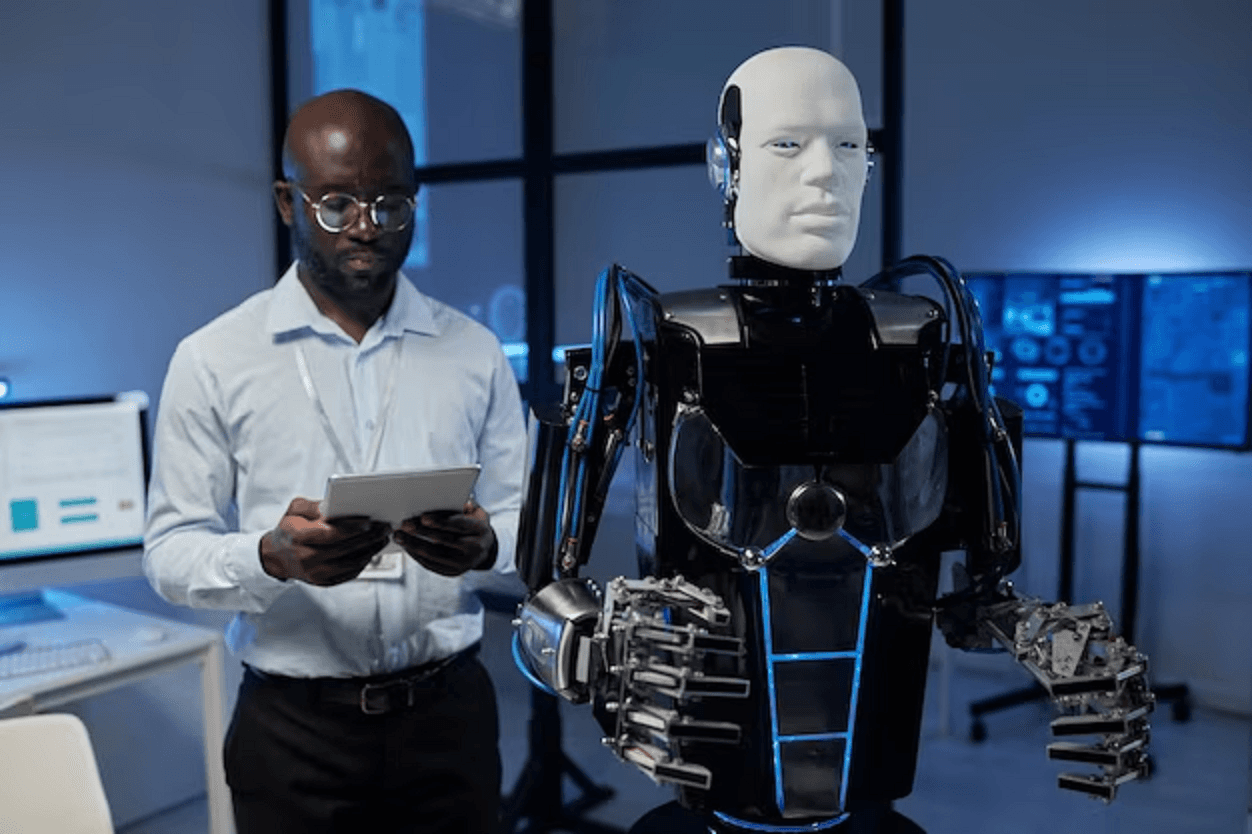Feb 18, 2022
A huge part of solving the wider healthcare challenge is making science understandable to the wider public, At the moment, we are blocking progress by making science very difficult to understand, One thing that we have been working on is a tool that translates science into easy to understand content with AI.
Artificial Intelligence (AI) is a major force in technological innovation that is transforming industries and problem-solving techniques. Artificial Intelligence (AI) is a field with a wide range of applications, including self-driving cars and virtual assistants. In the healthcare industry, AI is a disruptive force that presents untapped potential to revolutionize clinical research and healthcare delivery.

Investigating Artificial Intelligence
The goal of artificial intelligence (AI), a subfield of computer science, is to create intelligent machines that can mimic human cognitive processes.
This covers problem-solving, pattern recognition, decision-making, and data-driven learning. Its subdomains include neural networks, machine learning, and natural language processing, all of which have a significant impact on a variety of industries.
The Role of AI in Clinical Research
The adoption of AI in clinical research signals a paradigm change in medical research approaches. By streamlining procedures, improving accuracy, and enabling customized care, its influence empowers researchers and healthcare professionals and advances the field's progress towards more effective and efficient healthcare delivery.
Accuracy and Efficacy in Clinical Research: Artificial Intelligence is essential for optimizing clinical trials, increasing accuracy, and boosting productivity. Algorithms for machine learning help in participant selection, trial design optimization, and patient response prediction. These developments raise the possibility of successful outcomes while speeding up trials and drastically lowering costs.
AI-Powered Advances in Diagnosis: AI integration brings about a significant revolution in medical imaging and diagnosis. In previously unheard-of accuracy, algorithms evaluate intricate imaging data to help in early disease detection and treatment planning. Rapid diagnosis made possible by AI-enhanced diagnostics results in prompt interventions and better patient outcomes.
Utilizing AI to Unveil Personalized Medicine: AI is the key to realizing personalized medicine's potential. AI algorithms customize medicines to each patient's unique genetic profile by carefully examining large datasets that include genetic data and medical records. By closely matching medicines to each patient's individual traits, this strategy maximizes efficacy and minimizes side effects.
Regulatory Frameworks and Ethical Issues: The increasing impact of artificial intelligence (AI) in clinical research demands a thorough assessment of ethical issues. In order to preserve ethical standards and maintain patient trust, guidelines for data protection, transparency, and ethical AI deployment in healthcare are constantly changing.
Accepting AI's Role in Medical Research
It is critical to embrace AI's potential while proactively addressing its ethical consequences as it develops and becomes more integrated into clinical research. It is the beginning of a revolutionary journey to unleash innovation, improve patient outcomes, and create a more individualized and effective healthcare environment.
Impact of 42 CFR Part 11 on AI in Clinical Trials
Charles Ebaugh
The impact of new clinical trials regulations on AI uptake (UK, will US follow?)
Charles Ebaugh



